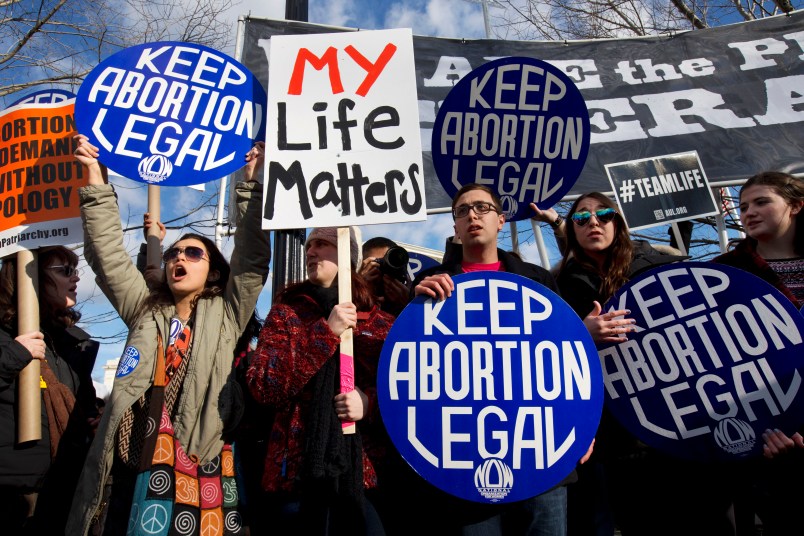In blocking an Alabama requirement that abortion providers have admitting privileges — an anti-abortion mandate that is closing clinics in states across the country — a federal judge pointedly used a line from Justice Samuel Alito during this year’s Supreme Court lethal injection case.
The opinion issued Thursday evening by U.S. District Judge Myron H. Thompson, a Carter appointee, was a narrow one: it gave a single abortion clinic in Tuscaloosa temporary relief from the state’s admitting privileges requirement. “By closing down operations at the Center, the regulation seems to impose severe and, in some cases insurmountable, obstacles on women who seek abortions in this State in several ways,” Thompson ruled.
The state requires that either a clinic’s abortion provider or a covering physician have special privileges to admit patients in local hospitals, which, as the opinion detailed, had become logistically impossible for the clinic in the case to obtain.
However, the 81-page opinion provided a thorough and comprehensive discussion of why the admitting privilege requirement, along with what the judge called the widespread “harassment and stigma” abortion providers face, would make seeking the procedure more difficult for women, and thus more dangerous for their health — despite claims on the contrary that admitting privileges were to protect the health of abortion patients.
“These circumstances have resulted in a climate in which any physician associated with abortion in this State is stigmatized, harassed, and even threatened with violence,” Thompson wrote. “The same has occurred even to covering physicians, who would simply be caring for women who have already received an abortion and now may need urgent medical help. The court’s obligation to protect the right cannot sway in light of these tactics.”
To drive the point home, Thompson quoted comments made by Alito — one of the Supreme Court’s most conservative members — during this spring’s death penalty case, in which he accused the challengers in the case of asking the judiciary to participate in “what amounts to a guerrilla war against the death penalty” by ruling in their favor. (The challengers were asking the court to declare a type of lethal injection drug unconstitutional; the court, led by Alito, ultimately ruled against them.)
“Here, the same question could be asked: Is it appropriate for the judiciary to countenance efforts by those opposed to abortion to create circumstances,
through a confluence of violence and hostility to abortions in the community, in which abortion clinics find it impossible to comply with otherwise neutral
regulations because they cannot find local doctors willing to perform abortions or to associate with those who do?” Thompson wrote “The implication here, too, could be ‘No’: this court should not stand by to allow a woman’s fundamental right to obtain an abortion to be subverted in that way.”










I realize that this particular ruling is unlikely to get wide exposure, but “Bravo” to this judge for using Alito’s own words to expose the hypocrisy of the right.
A glimmer of sanity in the South. Forced birthers will be screaming.
Did Alito’s wife ever recover from his “brutal” confirmation hearings?
I hope he dropped the mic after quoting Alito.
It would mean more of the right understood the concept of hypocrisy.
Cognitive dissonance, the lifeblood of the right…